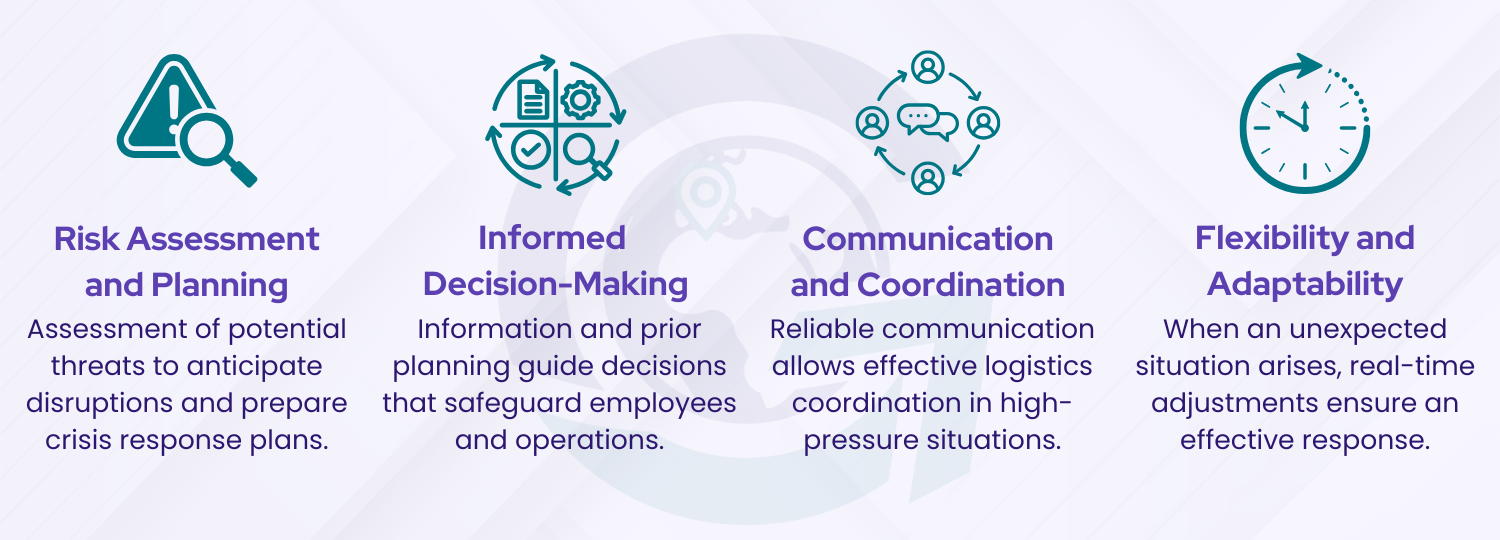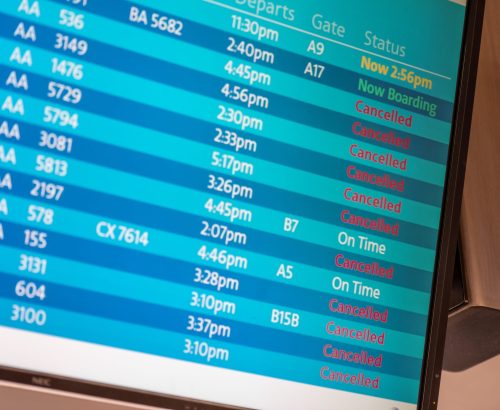When a critical situation emerges, having an experienced response team makes a difference. Quick, efficient action is crucial to protect employees and operations. Discover what makes an emergency response team effective and how our team coordinated an evacuation amidst rising tensions in Israel.

A group of trained professionals who plan and manage actions during a crisis. They assess risks in advance and build contingency strategies to avoid disruptions. When an emergency occurs, they are prepared to lead response services and ensure safety and well-being.

An emergency response team is needed when there is a threat to employees, operations, or assets. These threats can range from natural disasters and medical emergencies to civil unrest, security incidents, or flight cancellations.

A dedicated team that responds quickly and effectively helps safeguard employees and minimise operational disruptions. This ensures that organisations meet their duty of care obligations and supports business continuity, even in challenging conditions.


Our team identified that rising tensions in Israel and continued flight cancellations threatened our client’s safety. We compiled a risk report and presented it to our client, so they could make an informed decision. After understanding the implications of staying in Israel, our client chose to evacuate all staff in commercial flights. This was challenging considering commercial flights continued to be cancelled and seats were limited.

We knew thorough planning and coordination would be necessary to successfully evacuate our client’s employees on time. Relying on our team’s previous and ongoing risk assessment, we prepared for the evacuation. We pre-planned several routes from the accommodation to the airport. This would allow us to save time during the evacuation and avoid disruptions. We also maintained open channels of communication with our client to ensure the coordination of safe and timely departures.

Once we secured seats in commercial flights, our ground support team arrived at our client’s location. With our emergency response team closely monitoring the situation in Israel, we escorted our client’s employees to the airport. We remained alert for updates that would require us to change routes to arrive at the airport on time. Without disruptions, we ensured all employees made it to their departure flights. From then, our aviation team continued to monitor the flights until they landed safely and the evacuation was successfully completed. Two days later, the Foreign, Commonwealth, and Development Office advised all travellers to leave Israel, confirming the urgency of our crisis management approach.
Discover how to safeguard your employees and ensure business continuity with our emergency response team.